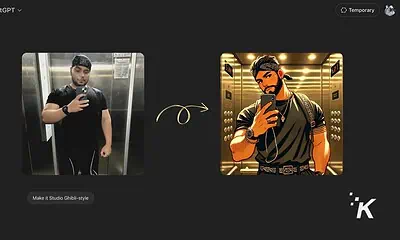ChatGPT
IGN and CNET owner Ziff Davis sues OpenAI over copyright
Ziff Davis claims that OpenAI has been copying its online articles without permission.

Just a heads up, if you buy something through our links, we may get a small share of the sale. It’s one of the ways we keep the lights on here. Click here for more.
Ziff Davis, a major digital media company that owns websites like CNET, PCMag, IGN, and Everyday Health, is suing OpenAI for copyright infringement.
According to the lawsuit, Ziff Davis claims that OpenAI has been copying its online articles without permission and using them to train its artificial intelligence models.
The company also says that it clearly told web crawlers not to access its content through a “robots.txt” file, which is a common method websites use to block data scraping.
Despite this, OpenAI allegedly ignored these instructions and even removed copyright notices from the content it collected.
With over 45 media brands and nearly 4,000 employees, Ziff Davis is one of the largest publishers to take legal action against OpenAI.
The company produces close to 2 million new articles every year and receives around 292 million visits to its sites monthly.
Some media companies, like Vox Media, The Atlantic, and The Associated Press, have chosen to work with OpenAI by signing licensing agreements.
These deals allow OpenAI to legally use their content. But Ziff Davis has taken the opposite route, joining The New York Times and several other news organizations in filing lawsuits.
In the lawsuit, Ziff Davis says it found hundreds of complete articles from its websites within a small sample of OpenAI’s publicly shared training data.
The company wants the court to stop OpenAI from using its content and to order the destruction of any data or AI models that contain its material.
In response, OpenAI stated that its goal is to support human creativity and progress, and that its models are trained using publicly available data, which it believes falls under “fair use.” (Via: The Verge)
Ziff Davis has not made any public comments beyond the legal filing.
Whether AI companies can use online articles to train their tools without paying or getting permission, and its consequences for the future of AI and journalism are still up for debate.
What do you think about this lawsuit? How do you foresee it ending? We want to hear your takes below in the comments, or via our Twitter or Facebook.





















